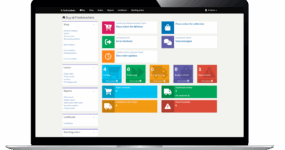
The UK School Food Standards are a set of government guidelines that outline the nutritional requirements for food served in schools across the United Kingdom. These standards are designed to ensure that children receive healthy and balanced meals while at school.
There may be some variations in the implementation and policies between the different nations of the UK, including England, Scotland, Wales, and Northern Ireland.
Here’s an explanation of the UK School Food Standards:
- Nutritional Standards:
The nutritional standards set specific requirements for different food groups and nutrients, and broadly includes:
- Fruit and Vegetables: Schools must offer a variety of fruits and vegetables each day.
- Protein: Meals should include a source of protein, such as lean meat, fish, beans, or tofu.
- Starchy Foods: Schools should serve starchy foods like bread, rice, pasta, and potatoes.
- Sugars and Fats: Limit on the amount of added sugars and fats in meals.
- Portion Sizes: Proper portion sizes should be followed to meet the energy and nutrient needs of children.
The School Food Plan replaced the explicit nutrient and food-based standards and was published in July 2013.
- Allergen Standards and Compliance:
Schools are required to provide information about allergenic ingredients present in the food they serve, and this is crucial to ensure the safety of children with allergies. The Food Standards Agency provides guidance on allergen management and labelling.
Special diets must be catered for within reason.
- Policy Differences Between Nations:
While the UK School Food Standards are a UK-wide framework, there are some policy differences between the nations:
- England: England follows the School Food Plan, which apply to all maintained schools, academies, and free schools.
- Scotland: Scotland has its own set of nutritional guidelines called the ‘Nutritional Requirements for Food and Drink in Schools.’ There may be slight variations from the UK standards.
- Wales: Wales also follows the UK School Food Standards but may have additional policies related to school food.
- Northern Ireland: Northern Ireland has its own Nutritional Standards that were introduced in 2007 and 2008. These were subject to a public consultation in 2020 and schools are asked to continue the original guidance until the revised set of rules go live.
- Free School Meal Eligibility:
Free school meals are provided to eligible children from low-income families. Eligibility criteria may differ slightly across the UK, and it’s important to check with the respective government department in each nation for the most up-to-date information.
Free meals are also offered to all pupils in primary schools notably in Wales and for 2023-2024 in Greater London and some authorities have even offered free meals for all high school children also.
A blanket UK wide free meals scheme is something campaigners are pushing for.
It’s essential for schools to regularly review and update their menus and practices to meet these standards and ensure that children have access to nutritious and safe meals while at school. Additionally, staying informed about any changes in policies and guidelines is crucial for compliance.
Julian Edwards FIH, FCSI, CFSP. CEO: Allergen Accreditation

